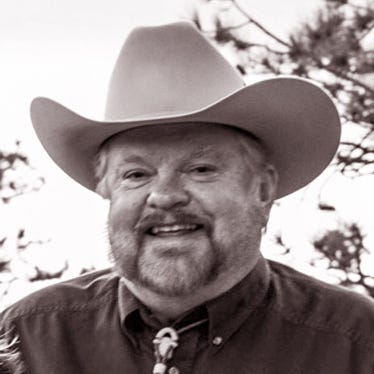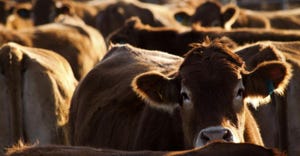The Beef Checkoff has been under legal scrutiny for more than a decade.
April 2, 2020

The District Court of Montana recently ruled in favor of the USDA, the national Beef Checkoff and all the state beef councils in the case brought by R-CALF and its legal partner, Public Justice. Here are highlights regarding what R-CALF was trying to do, its arguments and how the court decision came down. The Court issued a 27-page opinion.
This legal case is complicated in that those being targeted—the qualified state beef councils (QSBCs), the Federation of State Beef Councils and the Cattlemen’s Beef Board (CBB)—cannot directly defend themselves. With R-CALF suing USDA, the direct defense is handled by the USDA’s legal department and the Department of Justice. NCBA helped by funding the costs of several QSBC’s and individual cattlemen intervening to strengthen the defense.
USDA is the agency that is charged with making sure the Beef Checkoff operates as the Act and Order specifies. The Act and Order enabling legislation was designed by cattlemen and cattlewomen, passed by Congress in 1985 and voted on by cattlemen in referendum in 1986.
A little history
Initially, R-CALF’s lawyers had settled on a strategy of attacking the Montana Beef Council, a QSBC, but later added 14 other QSBCs to its suit. The strategy was to attack the checkoff at the state level where the $1-per-head is actually collected and initial decisions made on expenditures, thereby collapsing the whole structure.
The basic case was built around the contention that the Beef Checkoff violated the First Amendment of the Constitution by requiring all cattle operations to pay the checkoff, even if it paid for speech they disagreed with. The U.S. Supreme Court settled key points of this question over a decade ago, but R-CALF lawyers calculated that there were chinks that could be exploited, using legal precedent.
Key parts of the checkoff structure have always been the same. The boards of the QSBCs are selected or elected by cattlemen and cattlewomen, according to procedures specified in their state. CBB members are nominated by cattlemen and cattlewomen in the states, then the Secretary of Agriculture appoints the members of the CBB by selecting folks from the list submitted by cattlemen.
The Agriculture Marketing Service (AMS) is the USDA agency that monitors CBB and QSBC activity to make sure programs stay within the Act and Order mandates and that moneys are properly accounted for. AMS agency personnel attend all CBB meetings and review paperwork and program requests.
R-CALF’s arguments
While this has been the general procedure since inception, R-CALF’s lawyers argued those procedures didn’t provide tight enough control over QSBCs to make their statements “government speech,” as the Supreme Court of the United States (SCOTUS) had ruled CBB promotions and ads were in 2005.
Part of R-CALF’s case was using precedent to show that their purpose as an organization—"protecting domestic, independent cattle producers”—was being damaged by another organization’s activities [the checkoff] and that this was illegal.
What kind of damage? The legal Opinion, the final ruling on the case by the District Court of Montana, said in part that precedent allowed that, “An organization may bring a lawsuit on its own behalf `when it shows a drain on its resources from both a diversion of its resources and frustration of its mission’ in response to the alleged unlawful act.” The unlawful act here is the QSBC’s alleged violation of the First Amendment.
In effect, R-CALF was complaining that its budget was being damaged by having to sue the Beef Checkoff to stop speech it objected to. R-CALF has also diverted resources to “educate producers on the use of checkoff funds by QSBCs—the alleged problem central to this case,” thereby undercutting R-CALF’s purpose.
After R-CALF’s initial lawsuit was filed in Montana, Memorandums of Understandings (MOUs) between USDA and the QSBCs were instituted to buttress and clarify USDA’s authority over QSBCs. This meant that the process of USDA pre-reviewing all materials put out by the QSBCs was spelled out, leaving no doubt that no “government speech” would be put out to the public without making sure it was compliant with the Act and the Order. Both the District Court and the Ninth Circuit relied heavily on the existence of those MOUs in ultimately deciding the case.
The case was originally filed in District Court in Montana, had been appealed to the Ninth Circuit Appellate Court and then sent back to the District Court for final resolution.
A key part of R-CALF’s argument had to do with what constitutes government speech. Because the Montana Beef Council and some other QSBCs are private organizations, R-CALF contended that they could not issue “government speech.”
The Court held that QSBC promotional and educational statements were still government speech, even if they were private entities, because government, i.e. USDA, had preview oversight authority over the material. It is the principle of accountability that is the key, the Court said, rather than exactly what kind of oversight or organizational structure.
That the QSBC is subject to decertification by the CBB, in concurrence with the USDA, is a key factor. The Supreme Court had held that potential control was an important element and had not defined minimum requirements necessary for that control.
R-CALF had claimed that USDA did not have sufficient control over QSBCs if USDA did not appoint members to their boards. The court held that being able to appoint members to state council boards was not a critical factor.
The court also reiterated that SCOTUS had upheld the checkoff structure of the CBB when “the government possessed limited appointment power,” that is picking from a nominated list and “further limited” by a list with geographic representation.
The court did note that while R-CALF has no legal recourse over ads or promotions it doesn’t like from the Beef Checkoff, it can lobby USDA about them.
Meanwhile, back in the states
The Montana Beef Council was severely crippled all this time because of the District Court’s initial preliminary injunction. Besides all the time and money that the CBB and QSBCs had to devote to backgrounding USDA attorneys, the efforts of NCBA and state cattlemen’s associations in supporting the legal response, the checkoff will have the added cost of reimbursing all of the government’s legal costs for fighting R-CALF’s lawsuit. This costs the industry and the checkoff more money than they would have had to “divert” without R-CALF’s lawsuit.
The MOUs now spell out additional guidelines for USDA to use in evaluating all the materials put out by the QSBCs, above past review levels, requiring “much analysis” in the words of the court. Since the checkoff reimburses USDA for every bit of expense it incurs in monitoring the checkoff, there will be substantial increased costs for the checkoff.
When ads or recipes come on television or radio, it’s doubtful any consumer debates whether or not it constitutes government or private speech. Yet R-CALF’s complaint alleged, in general, that because consumers viewed such ads as private speech, that meant it was no longer government speech and they should not have to pay for it through the checkoff.
The Court held that SCOTUS had already ruled in 2005 that R-CALF members “enjoy no right not to fund government speech…whether or not the reasonable viewer would identify the speech as the government’s.”
Impossible Foods just secured a half billion dollars for another round of funding, for their mission “to replace the world’s most destructive technology—the use of animals in food production—by 2035.” Also, the Physicians Committee for Responsible Medicine has sued the state of California for not including processed meat as a “known carcinogen.”
Surely industry’s limited funds would be better spent defending our industry against those who want our destruction. Especially when that is the stated goal of R-Calf’s allies—HSUS and Public Justice—in these attacks on NCBA and the mainstream beef industry.
Steve Dittmer is a longtime beef industry commentator and executive vice president of the Agribusiness Freedom Foundation. The opinions of the author are not necessarily those of beefmagazine.com or Farm Progress.
About the Author(s)
You May Also Like


.png?width=300&auto=webp&quality=80&disable=upscale)

.png?width=300&auto=webp&quality=80&disable=upscale)
